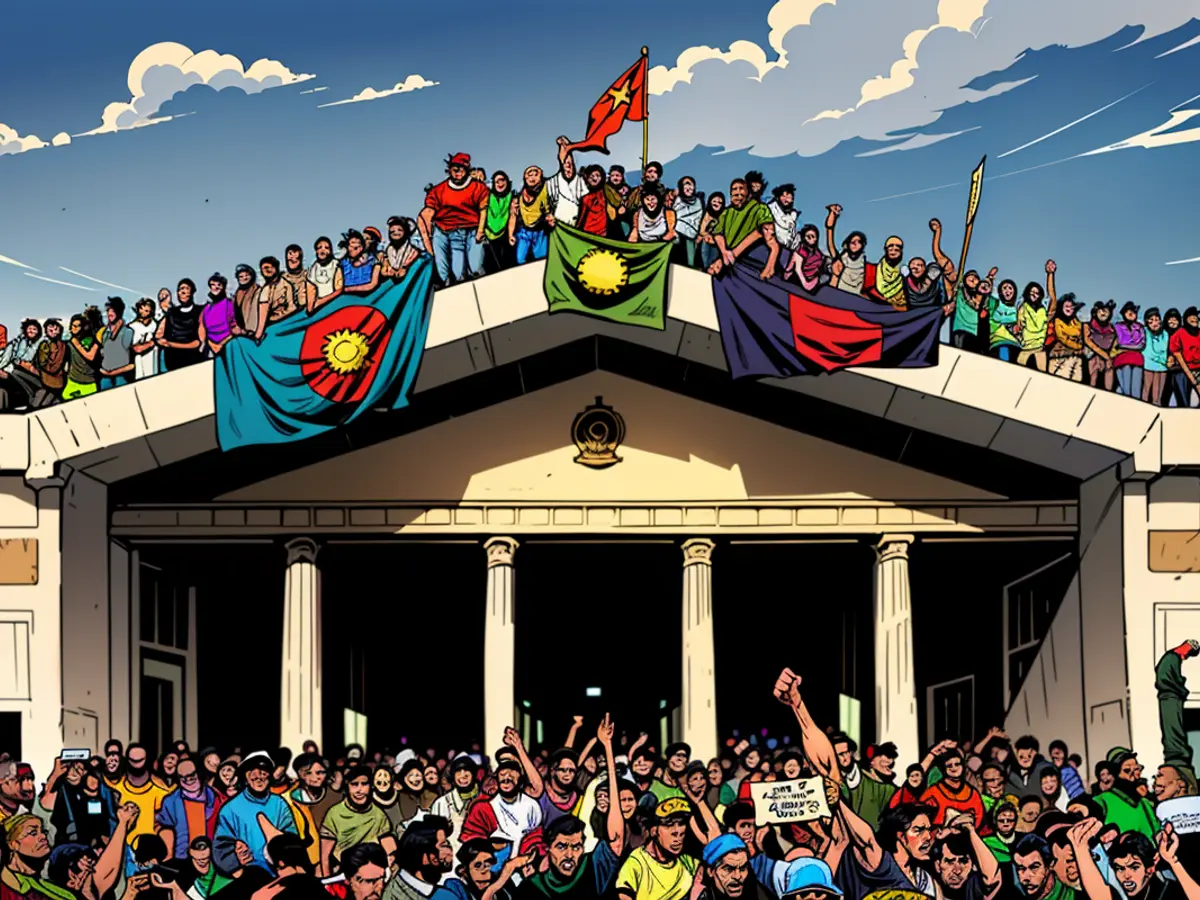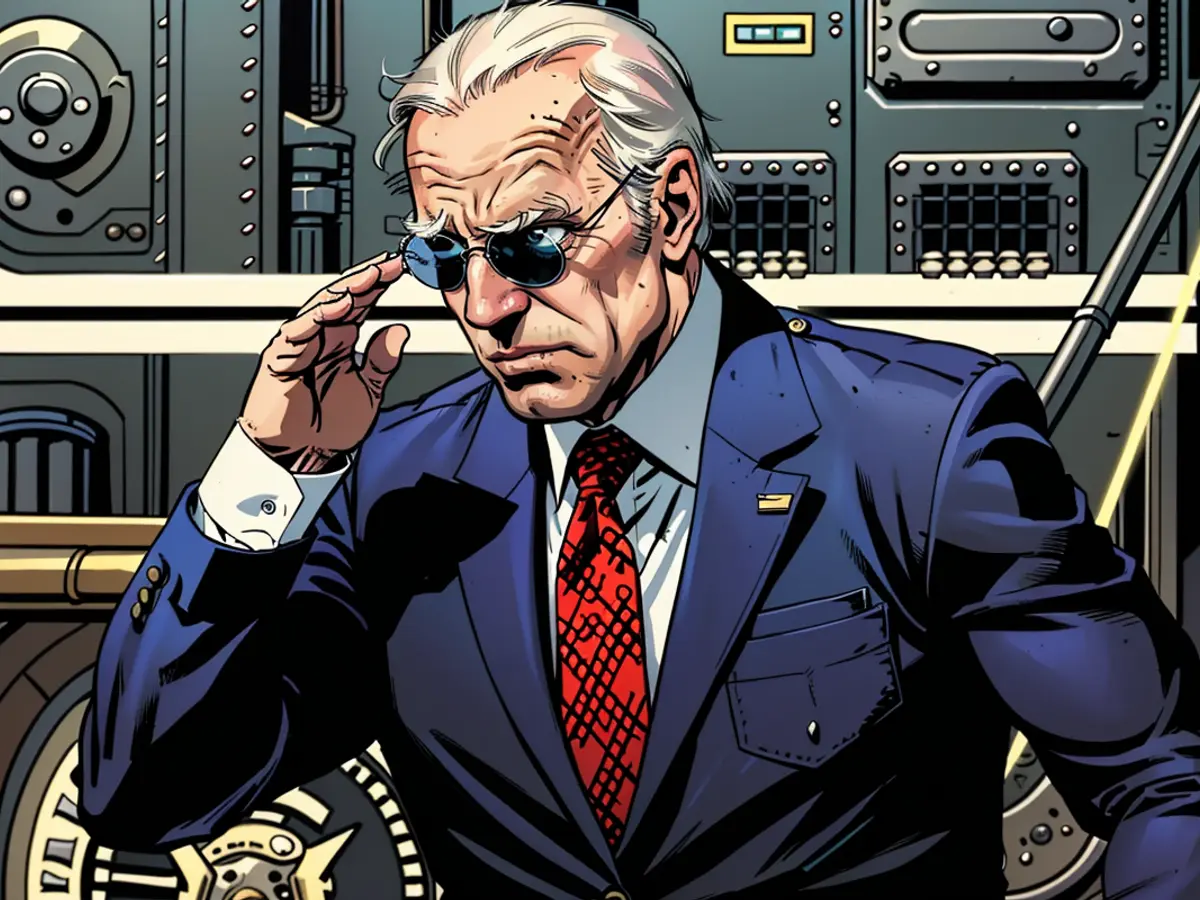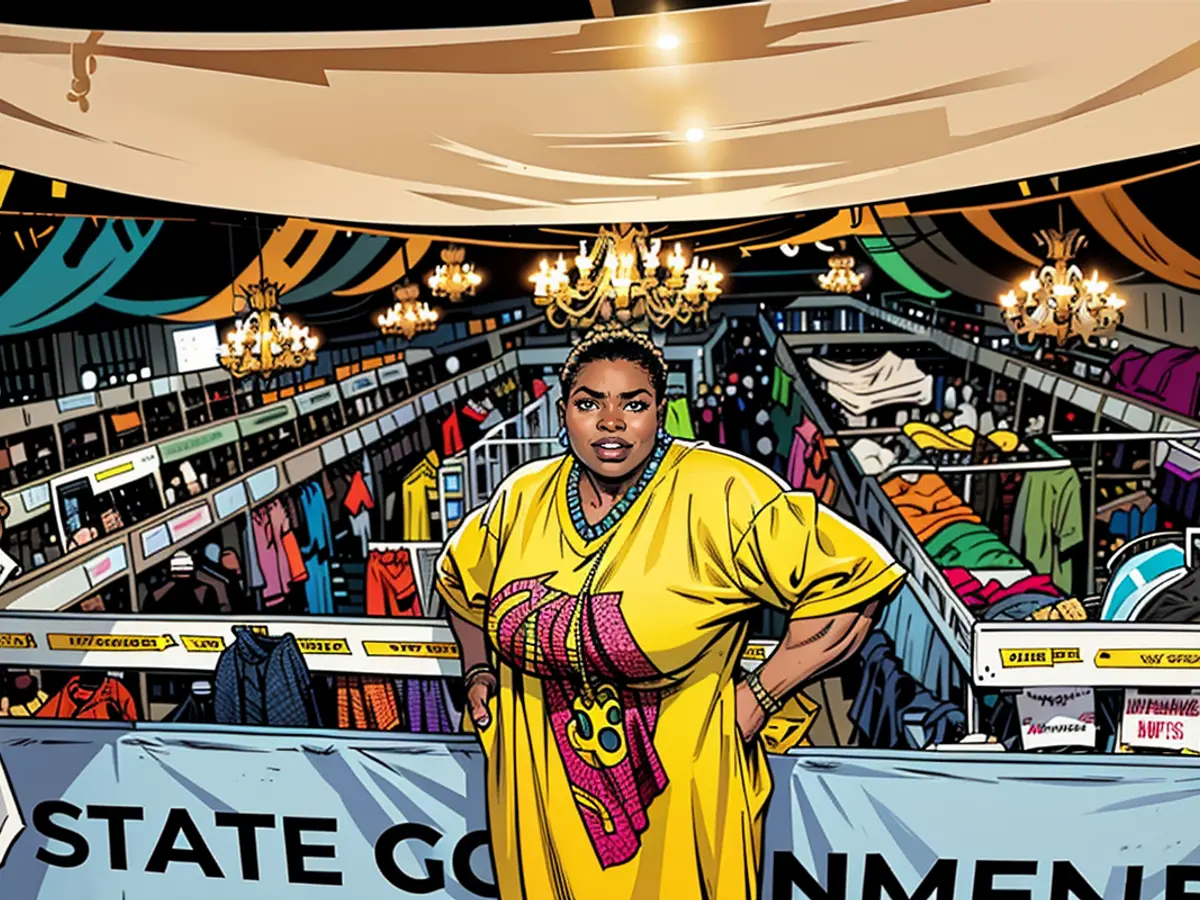Bangladesh's prime minister fled after protests: Army announces transitional government
"We will form a transitional government," said the army chief in his televised address. For this, he will speak with the most important opposition parties as well as representatives of civil society - but not with Hasina's party.
The president of the country, Mohammed Shahabuddin, announced on Monday that he had ordered the immediate release of former prime minister and opposition leader Khaleda Zia from prison. Detained protesters are also to be released.
"The country has suffered a lot, the economy has been weakened, many people have been killed - it's time to put an end to the violence," the army chief emphasized. "I take full responsibility." He hopes that the situation in the country will now calm down.
Previously, anti-government protesters had stormed the government palace in the capital Dhaka. On television, they were seen breaking through gates, looting furniture and books, or lounging on beds. On the streets, people celebrated, some dancing on a tank.
Later, protesters also stormed the parliament, houses and shops of Hasina's party colleagues, television stations, a museum, and police stations, as reported by police sources.
Hasina was taken to a "safe location". "Her security team asked her to leave, she didn't have time to prepare," AFP learned from her entourage. Initially, the 76-year-old was taken out of the palace in a convoy of cars and later flown out of her 170 million-strong country by helicopter. According to Indian media reports, the helicopter landed at a military base near the capital New Delhi. From there, she reportedly planned to continue her journey to London.
The escape occurred a day after Sunday, when hundreds of thousands of government opponents and supporters took to the streets and attacked each other with knives, sticks, and batons. Security forces also shot into the crowd with rifles.
According to AFP figures, 94 people were killed on Sunday. This was the highest number of victims in a day since the protests against the government began in July, with a total of at least 356 people killed. At least 56 people died in the clashes on Monday, as reported by police and medics.
Originally, the protesters went onto the streets against a quota system for job allocation in the public service, which they believed favored Hasina's supporters. Over time, the demand for the resignation of the prime minister who has been in office since 2009 became the goal of the protest movement, with more and more people from all walks of life joining in. Film stars, well-known musicians, and former generals also expressed their support, as did companies in the textile industry, which is important for the country's economy.
EU foreign policy chief Josep Borrell stated that a "peaceful and orderly transition to a democratically elected government" is now essential. A spokesman for the German Foreign Office also said that it is "important for Bangladesh to continue on its democratic path". He added: "We now advise against travel to Bangladesh."
Hasina was re-elected in January in an election boycotted by a large part of the opposition. Her government has been accused of, among other things, misusing state institutions for its own power retention and suppressing government critics - even to the point of extrajudicial killings of opposition members.
The army has initially taken control in Bangladesh. In 2007, following political unrest, the military declared a state of emergency and installed a transitional government backed by it for two years. Hasina then came to power in 2009.
The army chief mentioned the need to establish a transitional government to bring an end to the violence and instability, avoiding discussions with Hasina's party. Amidst this political change, the European Union emphasized the importance of a peaceful and orderly transition towards a democratically elected government in Bangladesh.







